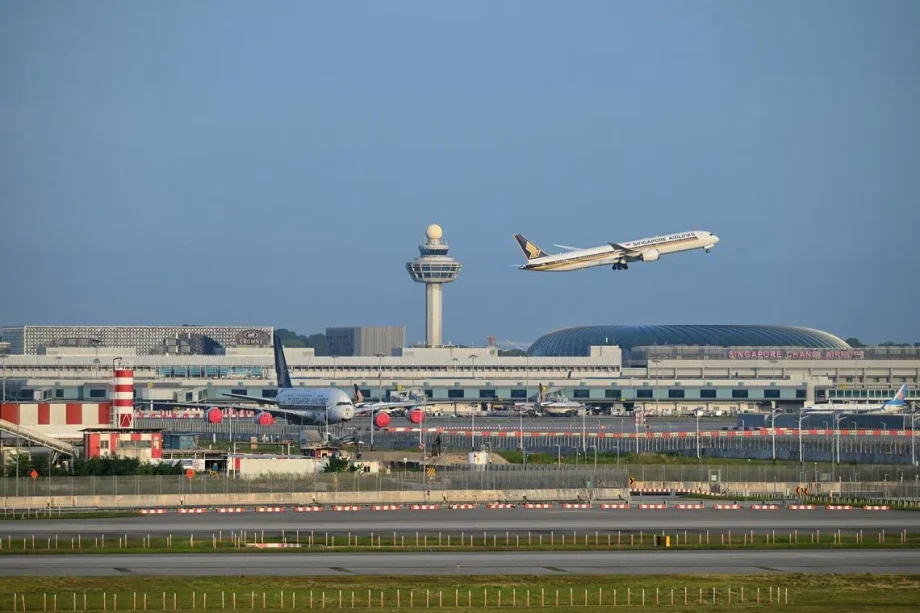HONG KONG – Singapore’s decision to impose a levy on travellers to raise the use of greener jet fuel may have a “dampening effect on air travel”, and the International Air Transport Association (Iata) may not recommend such a policy elsewhere, said the body’s official.
However, given Singapore’s land constraints and limited capacity in producing sustainable aviation fuel (SAF), the levy – which would go to a fund to procure the fuel – would be suitable for the country, Dr Marie Owens Thomsen, the association’s senior vice-president for sustainability and chief economist, told reporters at the Iata World Sustainability Symposium on Oct 22.
passed a Bill to impose a fixed levy on all departing flights
from 2026 to support airlines’ use of SAF.
The target is for SAF to constitute 1 per cent of all jet fuel used at Changi and Seletar airports in 2026, with the goal raised to 3 to 5 per cent by 2030.
Preliminary estimates from the authorities are that economy-class passengers may incur an additional $3 levy for short-haul flights, $6 for medium-haul flights and $16 for long-haul flights, such as those to Bangkok, Tokyo and London, respectively.
Sustainable aviation fuel,
mostly made from waste materials such as used cooking oil, has been deemed the most practical way to decarbonise the aviation industry as it can be blended with jet fuel and used on existing aircraft and refuelling systems without any costly modifications.
Iata – a trade association for airlines – is more in favour of having government incentives to raise the adoption of SAF, as in the US, which is offering tax credits and funding to green fuel producers.
It feels strongly against SAF policies that mandate the use of a certain percentage of green fuel by airlines when the supply of such fuel is still limited.
Such mandates – which have been in place in the European Union and Britain since early 2025 – have driven up SAF prices and subjected airlines to penalties for not meeting the blend when the supply is low, said Iata.
However, the association finds Singapore’s approach to be different and creative, based on its circumstances.






